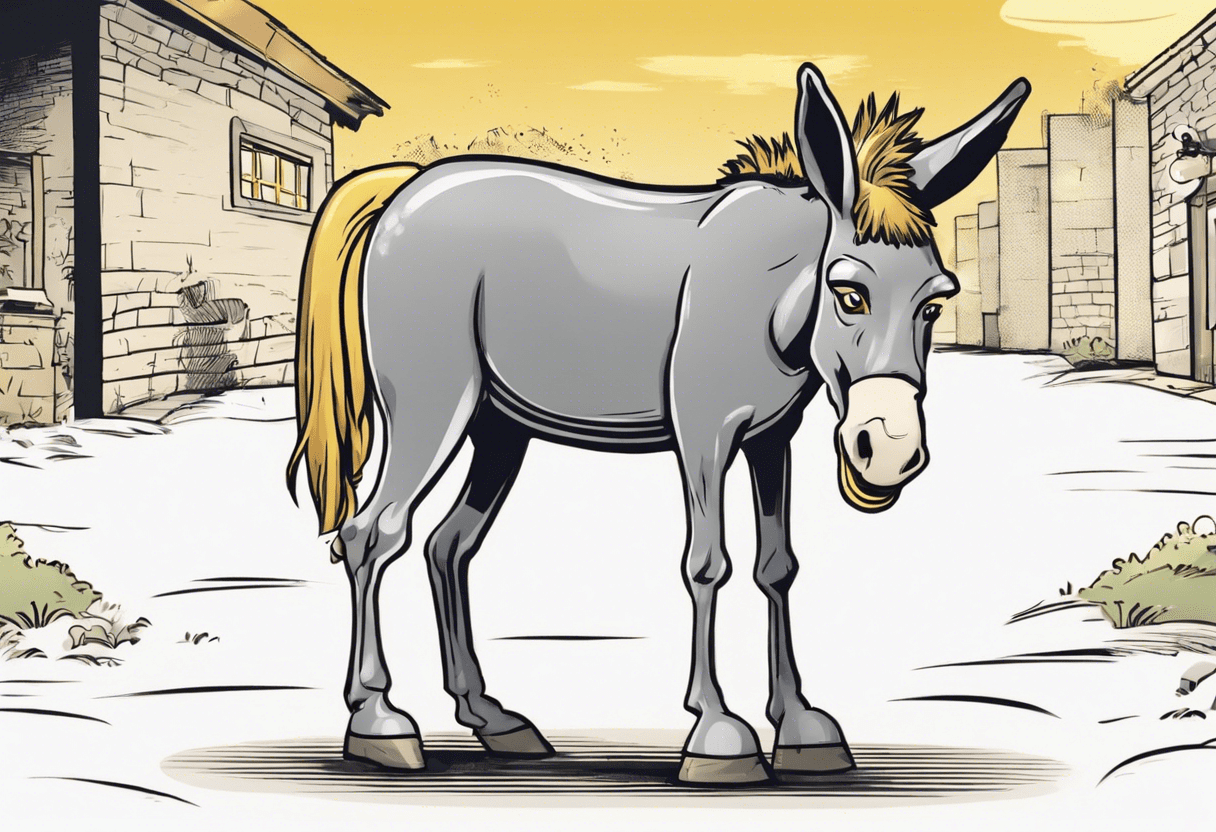quoting naddr1qv…qrpr
In today's world, where self-promotion appears to be the standard, there exists a subtle charm in modesty. As a child, I frequently encountered the expression, "Only a donkey praises their tail." its significance has remained with me throughout my life. It serves as a reminder that authentic excellence does not require shouting from the rooftops; instead, it manifests itself in actions, not words.
Allow me to now introduce Alfred Adler, a pioneer in the field of psychology. Born in Vienna in 1870, Adler's theories challenged the prevailing views of his time, particularly Sigmund Freud's emphasis on the unconscious mind. Adler proposed individual psychology, focusing on the unique experiences and perceptions that shape each person's worldview. Central to his theories was the concept of the "inferiority complex" and its counterpart, the "superiority complex," shedding light on how individuals grapple with feelings of inadequacy and superiority.
Inferiority complex
The "inferiority complex" describes persistent feelings of inadequacy and self-doubt, stemming from early experiences. Individuals afflicted with this complex often seek validation and may engage in compensatory behaviors. Therapy and self-reflection are key to addressing and overcoming these feelings, fostering healthier self-esteem and confidence.
An example of an inferiority complex might be a person who, from a young age, consistently felt overshadowed by their siblings' achievements and talents. Despite their own unique abilities and successes, they internalize a belief that they are inherently inferior to others. This belief could manifest in various ways throughout their life, such as constantly seeking approval from others, feeling anxious or inadequate in social situations, or striving excessively for success in an attempt to prove their worth.
Superiority Complex
Conversely, the "superiority complex" manifests as an exaggerated sense of self-importance and entitlement. Individuals with this complex may exhibit arrogance and lack empathy towards others, struggling with meaningful relationships and criticism.
An example of a superiority complex could be seen in a person who consistently belittles others and insists on being the center of attention in social settings. They might boast about their achievements, talents, or possessions in an attempt to assert their superiority over those around them.
Back to the childhood phrase "Only a donkey brags praises their tail." Returning to the childhood adage "Only a donkey brags praises their tail,” modesty and humility are often misconstrued as weakness or a lack of self-confidence. Nevertheless, it is far from that. It entails possessing a realistic view of oneself and comprehending that one's value should not rely solely on external validation or praise. Instead, it's found in the genuine connections we make with others and the positive impact we have on the world around us.
By abstaining from boasting about ourselves, we provide room for others to shine. It is not about denigrating our accomplishments or pretending to be less than we are. On the contrary, it involves acknowledging our abilities without feeling compelled to advertise them to the public continually. Therein lies the elegance of allowing our actions to speak louder than our words.
Moreover, humility allows for personal growth and learning. When we're humble, we're open to feedback and constructive criticism. Instead of becoming defensive or dismissive, we approach each opportunity for improvement with an open mind and a willingness to learn. This mindset not only helps us develop professionally but also fosters a sense of humility and gratitude for the knowledge and experiences that others bring to the table.
Humility enables personal development and learning. When we're not constantly focused on ourselves, we become more attuned to the needs and experiences of those around us. We listen more intently, offer support more readily, and celebrate the successes of others with genuine enthusiasm. In doing so, we cultivate deeper connections and create a more inclusive and supportive community.
In a society that often glorifies self-promotion and individualism, it can be challenging to embrace humility fully. However, it's a quality worth cultivating, both personally and professionally. By focusing on what we can contribute rather than what we can gain, we create a more harmonious and compassionate world. Hence, should you ever find the urge to trumpet your achievements or magnify your ego, pause to reflect on the timeless wisdom encapsulated in the age-old adage: "Only a donkey praises their tail," alongside the profound insights of the Austrian psychiatrist's psychological framework. Instead of trying to prove yourself with words, show who you are through your actions. Embrace humility, which means being modest and not bragging. True greatness isn't about loudly boasting about your good qualities. It's about having inner strength and making a positive impact on the people around you.
Lastly as the Great Roman emperor Marcus Aurelius said, "Waste no more time arguing about what a good man should be. Be one."

honeybadger
npub18r…9wph9
2024-04-07 12:14:26
Author Public Key
npub18ru6qhq7rzqyzz5fjsexlreygh40ytum9dkp85hsjxxej6velszq39wph9